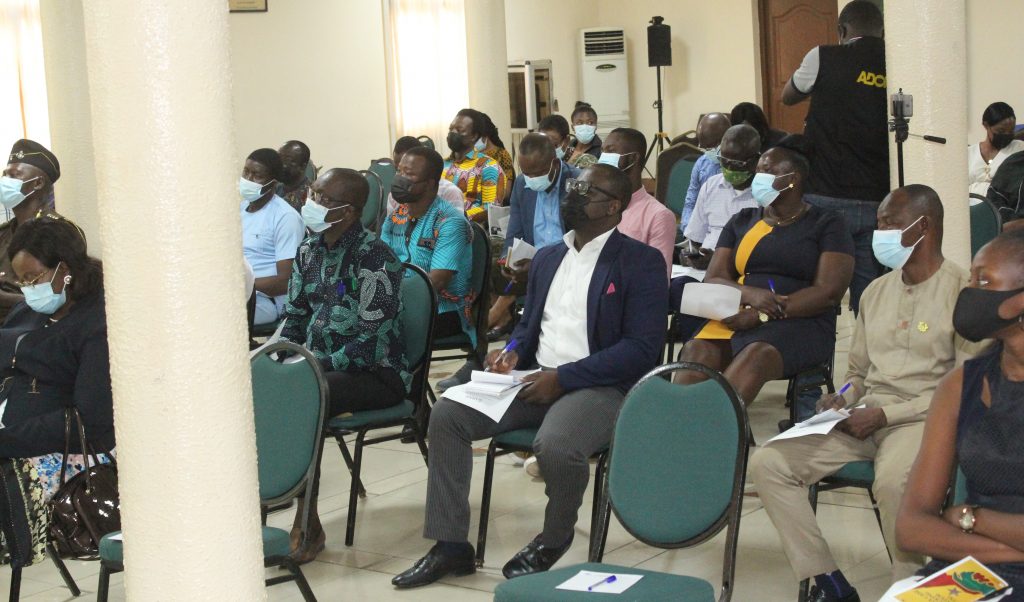A Supreme Court judge, Justice Emmanuel Yoni Kulendi has proposed that justice sector players especially police personnel and judges should experience prison life as part of their training.
According to Justice Kulendi, the mandatory exercise will impact positively on the posture of these actors in the discharge of their jobs.
Speaking at a sensitization workshop on the Ghana Case Tracking System (CTS), a component of the USAID Justice Sector Support Activity (JSSA) on Thursday, August 12, 2021, he indicated that if these stakeholders in the justice delivery chain spend some time in prison it will help shape their understanding and make them better appreciate their dealings with people who contravene the law.
“I think if anyone is going to play a role in the criminal justice system, in the course of their training, the system should have some orchestrated built-in process that will cook up their running into problems with the law,” the Supreme Court judge stated.
He added “If you’re a policeman, and you are put into a cell for 48hours then after, when you’re managing others, your disposition to the people who come here will be different. It will change,” he said.
The Apex Court judge admitted that judges adjudicate cases to their own understanding, a reason the prison experience should be extended to them.
“The same goes for the judge or magistrate that in the course of the training, we should orchestrate a system where you get remanded and put into prison for one week. When you come back, the first thing you will appreciate is that the custodial facilities were not meant as a marketplace and so it is not meant for everyone who visits the police station or court,” he said.

Justice Kulendi endorsed the CTS saying, “it’s always a human attitude” to reach for the most extreme punitive actions and that is why we need a digital intervention because it makes the justice delivery process transparent”.
Making some reservations about Ghana’s justice delivery system, Mr. Kulendi explained;
“It is the people who have an interface with the criminal process who should be blamed. For instance, a person can be charged and granted bail.. but the court will say go and bring two civil servants who earn more than Ghc 15,000 and all kinds of things. Instead of the judge to say go home on self-recognizance bail, the judge will impose conditions that you can never meet and that is not a problem with the law, it is a human problem. I mean, you walk to the police station yourself and when you get there you become a prisoner.” He said.
“Because we are just mean-spirited, [we] like power and lack [neighbourliness] because if you don’t want that to be done to you or your sister or brother, you won’t do that to anybody,” he concluded.
The Justice Sector Support Activity
The JSSA is an intervention that seeks to reinforce efforts by the US Government to enhance Ghana’s justice delivery system by increasing Citizen Oversight and Monitoring of Criminal Cases, increasing citizen knowledge and access to Justice Sector services, and strengthening advocacy for accountability of key justice sector institutions for improved justice delivery in Ghana.
By: Rudolph Nandi

















































